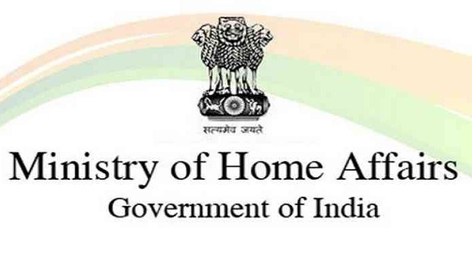Bid to win over local ultras in Kashmir
*It will be real rehabilitation, not just incentives
Sanjeev Pargal
JAMMU, Nov 1: The Union Ministry of Home Affairs (MHA), the Ministry of Defence (MoD) and the Union Territory Government of Jammu and Kashmir are likely to come up with ‘Rehabilitation Policy’ for local militants operating in the UT soon to win over them and Over Ground Workers (OGWs).
While framing broad contours of the Rehabilitation Policy, the Central Government has taken top brass of Army, other security forces, Jammu and Kashmir Police and Intelligence agencies besides all other stakeholders on board to incorporate their opinion, official sources told the Excelsior.
This, according to sources, will be the first comprehensive Rehabilitation Policy for the militants as, for the first time, the Ministry of Home Affairs, MoD and the Union Territory Government, have taken major stakeholders on board mainly the security forces and Intelligence agencies which were engaged in dealing with anti-militancy operations in Jammu and Kashmir, especially the Valley as Jammu region has very few militants.
Top officials of the Ministry of Defence are in consultations with the Union Ministry of Home Affairs to give final touch to the Rehabilitation Policy, which is likely to be rolled out soon.
According to sources privy to draft preparations of the document, the Rehabilitation Policy is likely to be local militants and OGW-centric as both Central and Union Territory Governments planned to wean away local youth and OGWs, who are also locals, from the militancy.
The foreign militants and foreign-trained militants involved in heinous crimes like killings are most likely to be kept out of the purview of Rehabilitation Policy benefits, sources said.
“The focus is on local militants and the Over Ground Workers. The Government wants them to surrender. In almost all the encounters in Kashmir, the local militants are being given chance to give up arms and surrender. Even family members of the trapped militants are being taken to the encounter sites to persuade their kin to lay down arms and join mainstream,” sources said and added that the Rehabilitation Policy will focus on surrender of the local militants so that they don’t get killed in the gun-battles.
“The primary focus of the policy is on the rehabilitation front so that the militants who return to the mainstream live a secure and happy life. The policy entails amnesty from prosecution for local militants who surrender and if a surrendered militant gets a job, he wouldn’t be disqualified because of his past,” sources said.
Asserting that cash incentives are likely to be discouraged in the Rehabilitation Policy, sources said the Government proposed to focus on “real rehabilitation” of the militants through different means like establishment of business units etc. which will be part of the Policy.
The previous Rehabilitation Policy which offered cash incentives, Fixed Deposit Receipts (FDRs) and money in lieu of arms, ammunition and explosive devices handed over by the militants at the time of surrender will be superseded by the new Policy, sources said, adding since the Central and UT Governments have taken view points of all major stakeholders, there is not going to be any opposition to the Policy.
“The new Rehabilitation Policy is going to be completely different from the previous Policies which failed to enthuse the local militants to surrender. In fact, there were very few militants who surrender for the sake of Rehabilitation Policy,” sources said.
The Ministry of Home Affairs, Ministry of Defence and Jammu and Kashmir Government were of the view that number of local militants and Over Ground Workers was quite significant in the Kashmir valley and they need to be brought back to the mainstream which will automatically break the backbone of foreign militants, whose number is also dwindling.
The first surrender policy in Jammu and Kashmir was introduced in 1995, when militancy was at its peak. It promised a fixed deposit of Rs 1.5 lakh, monthly stipend of Rs 1,800 and some vocational training for the militants who surrendered.
In 2004, a new Rehabilitation Policy was approved which was applicable to “known militants who surrender with weapons” and “dreaded militants even without weapons”. It also promised a fixed deposit of Rs 1.5 lakh, monthly stipend of Rs 2,000 and some vocational training.
In 2010, another policy was announced for Kashmiri militants who had gone to Pakistan occupied Kashmir (PoK) for arms training between 1989 and 2009 and wanted to return.
However, this policy had fixed designated routes for return of the militants from PoK including Poonch-Rawlakote, Uri-Muzaffarabad, Wagah border and Indira Gandhi International Airport. While the militants didn’t take these routes, a number of them returned from Nepal-Uttar Pradesh and Nepal-Bihar route, some of them with their families, and were allowed to reach Jammu and Kashmir.


